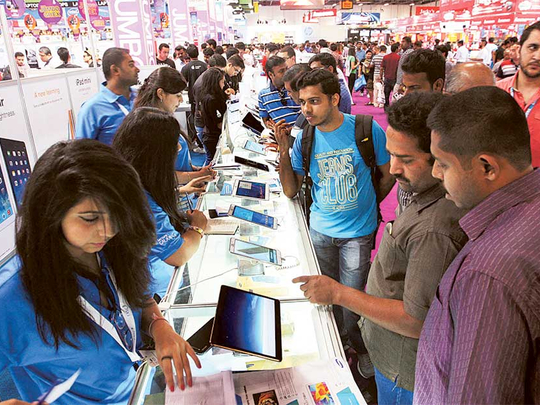
Dubai: The “millennials” — the 25-34 year olds and the favoured demographic of marketers — in the Gulf seem to have far weightier things on their mind than their counterparts elsewhere. They are more likely to be concerned about taking on too much debt, worry endlessly about balancing their daily expenses, and likely to put off buying property.
Such sentiments would have far-reaching consequences for marketers across multiple sectors, whether it be a local bank trying to get someone in that age group to take on loans or a credit card, or a developer trying to pitch a property at someone looking to buy a home for the first time.
This is based on an extensive multi-market survey conducted by the consultancy Initiative MENA. Apart from polling millennials in the UAE, Saudi Arabia and Egypt, those in another 16 countries also had a chance to air their views on the thoughts that preoccupied them most these days. In all, 19,000 respondents participated in the survey.
Quite a sizeable proportion of UAE respondents — 27.9 per cent — were “cynical” about the way brands market to them. When it comes to debt, 56.5 per cent were “worried/very worried” about getting into debts (for those in Saudi Arabia the percentage was 59 per cent), while for 44.2 per cent a similar sentiment was expressed on how to get out of debt.
For 58.4 per cent of UAE respondents, the concerns related to whether they had enough set aside to take care of their post-retirement years.
Millennials are valued by marketers because they tend to be savvy with newfangled technology, are more receptive to changes in their brand preferences, and have the financial capability to chase their wants. But the survey’s findings show the region’s millennials more in a mood of concern of their futures than gung-ho over what they ought to buy next.
Are such sentiments quite contrary to what this demographic expresses elsewhere? “Millennials in the Middle East tend to take on a lot of responsibility much sooner than many of their global counterparts,” said a spokesperson at Initiative MENA. “They get married earlier, they have kids at a younger age, and so have to support a family much earlier.
“The worldwide recession taught them that they can’t take finances and careers for granted. They have to approach life with a sense of caution, but at the same time enjoy living in the moment. They are more practical than earlier generations and are prepared to confront any future setbacks.”
That millennials lives revolve around social/digital media is borne out by the findings. Of the UAE respondents, 80.1 per cent get on to Facebook daily, while the tally in Saudi Arabia is 61.8 per cent. For LinkedIn, 12 per cent of the UAE millennials use it daily, while 20 per cent express their views on Twitter.
It’s a given then that marketers looking to engage with them should have a multimedia approach. “We recommend to most of our clients targeting millennials to start with online, or better yet, start with mobile and build from there,” the Initiative MENA spokesperson said.
“Millennials still watch a lot of TV, they read newspapers and magazines, and they like to talk about the content they consume on their online social networks. Marketers have the opportunity to participate and fuel these conversations as long as they’re authentic and make sense for both the audience and the brand.”
And they can even be a force of change in influencing others. “Aside from their natural tendency to be the first to adopt new trends in communication and lifestyle, they also tend to advocate these new trends to older generations,” said Amit Raj, General Manager of BPG | Maxus, the media buying entity. “They are crucial to build a future prospective consumer base. Not to mention that in this region, they are an undeniable demographic that is very difficult to ignore.”











